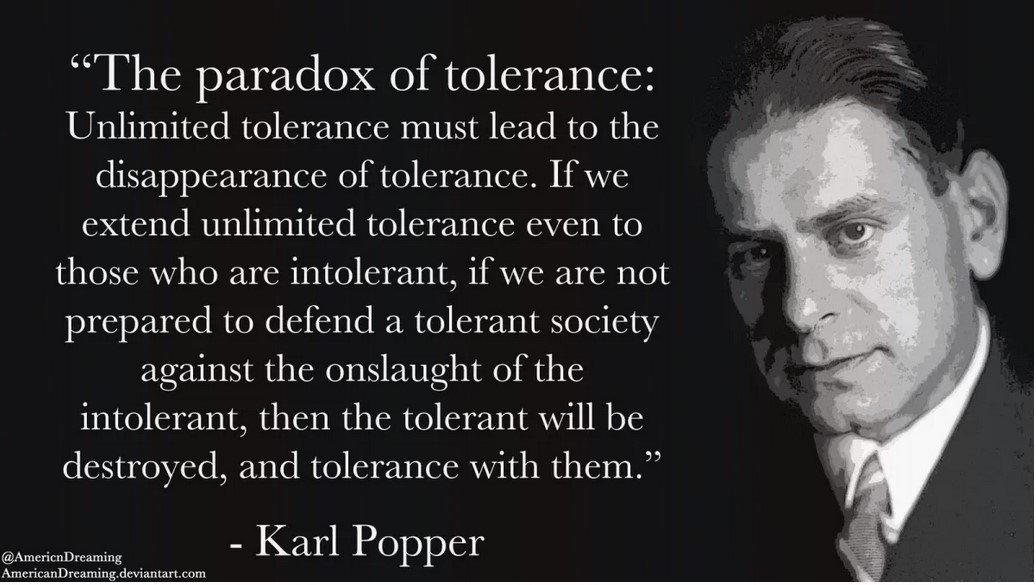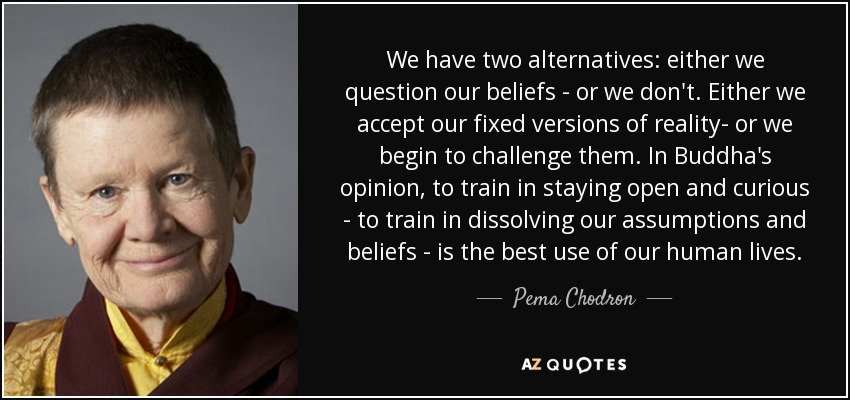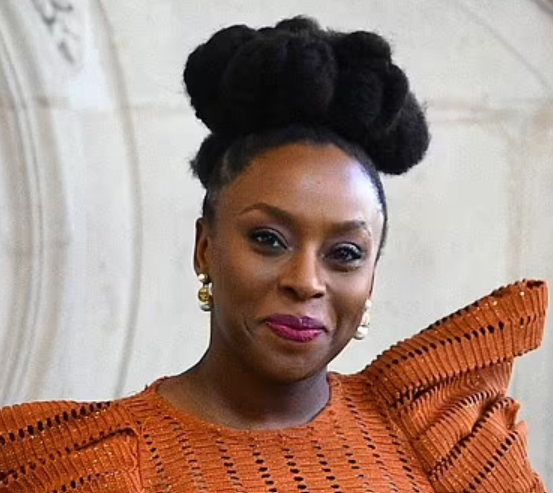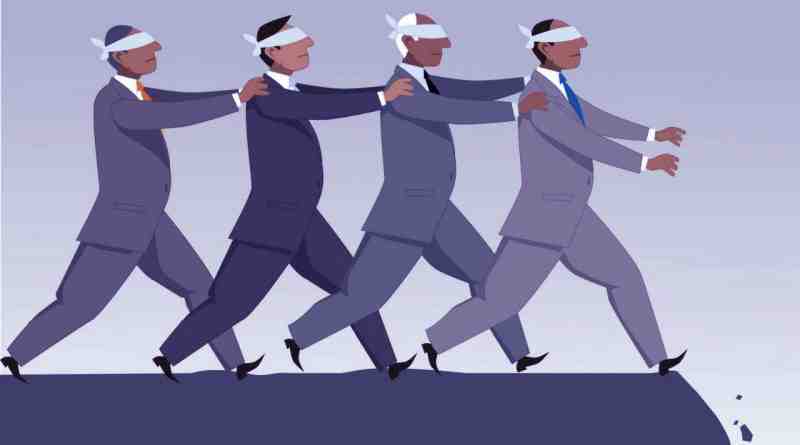The Failure Of Cancel Culture
Suppression Not Engagement
Why we need to wear our beliefs lightly and develop negative capability

What Is The Failure Of Cancel Culture?
The failure of cancel culture is that it focuses on suppression rather than engagement.
Throughout history people have campaigned to fight beliefs, ideologies, and injustices that they perceived to be oppressive, discriminating and morally wrong.
In my lifetime campaigners have successfully brought about major change in UK society in women's rights and sexual equality, race relations, gay rights, mental health and many, many other areas of life.
Brave men and women have dedicated their lives to successfully campaigning to bring about major change in UK society. They have achieved this by debate, demonstrations, lobbying, discussion and argument and above all else engagement.
The failure of cancel culture is that it does not seek engagement. It does not allow for any point of view other than its own.
It has no sense of balance or proportionality and simplistically see things as a binary choice: "Its my way or goodbye!"
Cancel culture behaviour exemplifies Melanie Klein’s "Splitting Theory" where small children separate the world into good or bad, and can’t integrate or tolerate the two sides of someone or something.
In
the normal course of human development, as we mature, we come to
realise that people can have different views from us and still be a good
or decent
person. But this is not the case with the proponents of cancel culture.
The failure of cancel culture is that it has no place for any view other than what it deems is acceptable.
In an opinion piece in "The Wall Street Journal" Peggy Noonan compared it to China's Cultural Revolution:
"Social media is full of swarming political and ideological mobs... in an interesting departure from democratic tradition, they don't try to win the other side over. They only condemn and attempt to silence."
Author Matt Haig describes cancel culture as:
“...anti-progress because it is anti-change... cancel culture, as I see it, involves the shutting down of different perspectives and treating people like mere disposable artefacts in the cultural economy.”
Award-winning novelist Chimamanda Ngozi Adichie who was cancelled for saying 'transwomen are transwomen' insists she will continue to say what she thinks and is happy to accept the consequences.
Writing in her blog about some of her painful experiences of cancel culture she says:
'There are many social-media-savvy people who are choking on sanctimony and lacking in compassion, who can fluidly pontificate on Twitter about kindness but are unable to actually show kindness.
People whose social media lives are case studies in emotional aridity. People for whom friendship, and its expectations of loyalty and compassion and support, no longer matter.
'People who claim to love literature — the messy stories of our humanity — but are also monomaniacally obsessed with whatever is the prevailing ideological orthodoxy.
'People who wield the words 'violence' and 'weaponize' like tarnished pitchforks. And so we have a generation of young people on social media so terrified of having the wrong opinions that they have robbed themselves of the opportunity to think and to learn and to grow.'
The context of cancel culture
The phenomenon of cancel culture started as an online movement to call out public figures in the worlds of the arts, sports and entertainment who were displaying behaviour, expressing opinions or promoting ideologies that were considered to be unacceptable. An early expression of this was the "Me too" movement.
The original aims of cancel culture were to hold these public figures to account and to seek to deny them a platform for their views.
Whilst the terminology and framing of cancel culture is recent the concept of ostracism and banishment isn't new at all and has been present throughout human history.
Social groups have excluded and penalised people for stepping outside of the prevailing norms for thousands of years.
The process of ostracism
The term ostracism comes from the Greek word "ostrakon" which was a piece of pottery that was the "voting slip" on which the name of a candidate for banishment was written by the citizens of ancient Athens.
In present day cancel culture the intent is to remove or shut down the opposing point of view which in practical terms means denying the offending party a platform, banning of the publications of their books, and increasingly removing them from their job. This is now prevalent in the world of education.
- There is no structured process to a cancellation.
- There is absolutely nothing democratic about it.
- There is no public vote rather a media and social-media driven consensus.
- No defence is sought nor granted.
- There is no right of appeal.
- There is no recognised process for mediation or restitution.
- It is an arbitrary, punitive process.
Ancient Athenians had a far more civilized and structured process of cancellation whereby:
- Athenian citizens could vote for the banishment of any Athenian citizen.
- There were two stages to the procedure of an ‘ostracism’.
- Firstly, a vote was held among all Athenian citizens to determine if an ‘ostracism’ was to be held, then, two months later, the vote itself.
- The banishment was temporary and fixed at 10 years.
- The offender retained all of their assets and property rights, which were held in a form of trust, and they retained their status.
The creeping scope of cancel culture
Over recent years there has been considerable scope creep and cancel culture has extended its reach to the world of politics, business and disturbingly, to the world of education and academia.
From an initial calling out of well known public figures who were deemed to have caused offence, over the past two to three years the scope has extended to University lecturers and professors, school teachers and writers, and increasingly anyone with a public voice in any context.
Its scope has extended beyond people to include brands, shows and movies placing celebrities, public figures, companies and media under close scrutiny through the lens of political correctness.
Cancel culture now includes historical revisionism whereby the past is judged by present day ideological sensitivities.
Historical Revisionism
On Sunday, in June 2020 "Black Lives Matter" protesters in my home city of Bristol, UK, pulled down a statue of 17th-century slave trader Edward Colston and rolled it through the streets before dumping it, into the harbour.
In 1680, Colston became involved in the slave trade as a senior executive of the Royal African Company, which held a monopoly on the English trade in African slaves at that time.
Colston supported and endowed schools and other public institutions in Bristol, London and elsewhere. His name was widely commemorated in Bristol landmarks, and the statue of him was erected in 1895.
With a colonial history spanning centuries Britain's towns and cities have many monuments to figures like Colston. Influenced by the prevailing cancel culture local authorities around the UK have already started to act to remove statues or review their future.
In a recent article Oxford University Professor Nigel Biggar commenting on the effect of the cancel culture within the UK publishing sector quoted a highly placed insider [who asked not to be named]:
'There is a soft power wielded by the woke. Controversy can be valuable publicity for a book — but not when it is contradicting the views set down by the Left-wing clique that rules many traditional publishing firms.
As a result, a self-inhibiting fear permeates everything. It stifles creativity, and writers agree to changes imposed by very young editors because they don't feel confident about standing their ground.'
Professor Biggar commenting on his latest book "Colonialism - A Moral Reckoning" being cancelled by his original commissioning publisher said:
"When I began working on my book, I naively thought that my research would be welcomed. It is a reaction to the slanderous caricature that equates British colonialism with slavery and racism, and thus the embodiment of evil.
Of course I detest slavery. It should scarcely need saying. I am a professor of moral theology, and I have dedicated my career to questions of good and evil, seen through the lens of religion.
But I also detest falsehoods. When lies create divisions and resentment, we have a duty to speak out and expose them. That was one of the main purposes of my book."
Why We Have Cancel Culture

There are many articles and studies on why we have a cancel culture and what it means and I don't want to rehash them here, rather I want to offer you a few personal perspectives on the causes together with some practical steps you can take to counter them.
Social Contagion
Social contagion is about how we get caught up in the tidal swirl of other people's emotional turbulence.
Social contagion is a hardwired reflex that is a basic building block of human interaction.
It has an evolutionary purpose in that is helps us coordinate and synchronize with others, empathize with them, and read their minds. All of these are critical survival skills.
But in the complex modern world of ideas and ideologies we need to be aware of this hardwired reflex and not allow it to determine what we believe and what we support.
Further Reading and Resources:
Social Contagion - You Become The Company You Keep
Herd Mentality - social media and the bandwagon effect
Herd mentality is another aspect of social contagion and it is prevalent in the world of ideas shared on line.
Typical subjects are based around
political correctness, woke-thinking, diversity issues, with catchy
slogans such as "Me Too" and "Taking The Knee" and for those who publicly differ in their opinions falling foul of cancel culture.
Many of us are are living in echo chambers, driven by algorithms, that we have built around ourselves and we accept ideas that on the surface sound right to us without subjecting them to challenge or scrutiny.
As with social contagion, herd mentality is another hard-wired instinct.
We find it easier to go with the flow rather than taking the time do our own research and making an independent judgement.
We get caught up in the bandwagon effect.
We need to be very aware of this instinct and develop counter-measures that enable us to think for ourselves.
Further Reading and Resources:
How To Avoid Herd Mentality - And Stay Far From The Madding Crowd
Group Culture - the invisible software that rules our lives
As social creatures we spend the majority of our time in the company of others, either by choice with our friends or by default with our families and employers.
We like to see ourselves as free agents making our own choices and living authentically but the reality is that The Matrix has many layers and we are unaware that we are more enmeshed and ensnared than we realise.
We are, to a very large extent, governed by our conditioning and our hardwired cognitive biases.
Group culture is another one of those things that also has a very powerful influence on our thought processes, decisions and behaviours.
The best way of thinking about it is to regard it as the invisible software that rules our lives,
and we are subject to it in any and every group that we belong to and attend regularly.
It is the single biggest determinant of how an individual will behave within any group environment.
It will over-ride education, intelligence and common sense.
Your best defence is to be aware of it and know what to look for.
Further Reading and Resources:
Group Culture - The Invisible Software That Rules Your Life
The Tyranny Of The Intolerant Minority
How have we in the western world as mature, long-standing democratic societies become tyrannised by intolerant minorities?
At a societal level this is perhaps the most important of these perspectives that I am sharing.
In summary, what happens is that tolerant, flexible and accommodating societies do not have strong formal or informal leaders controlling and enforcing the society's shared beliefs and values [because to do so would be intolerant and inflexible].
So, when an intolerant minority is present in a society where the majority are flexible and accommodating, and have no strong values-based leadership, there is an asymmetry in choices.
This
means that the flexible, tolerant majority accept the intolerant
minority position but the intolerant minority do not reciprocate.
The outcome of this is that rather than the minority being assimilated into the flexible majority, the flexible majority become assimilated into the inflexible minority!
To understand this and be
aware of the consequences is a sobering and frightening realisation -
and especially if you have any interest or motivation to engage in the
struggle to push back at cancel culture.
Further Reading and Resources:
The Tyranny Of The Intolerant Minority
Countering Cancel Culture
In early adulthood I belonged to an intolerant minority which reflected my upbringing in a very religious and narrow minded family. I was so full of certainty, not just about religion but about many things in life. I thought I was pretty smart and that I had many things figured out, until life got in the way. Now 40 years later I am painfully aware of how little I know. It increasingly seems that the more I know about life the less I know. Time and time again I have formed judgements about ideas and people only to realise with the passage of enough time that there was so much going on that I was unaware of, and my previous certainties collapsed like a house of cards. I want to leave you with two thoughts: [1] Develop the mental capacity for negative capability Negative capability means having the mental strength and flexibility to hold a number of contradictory ideas in your mind at the same time.
The phrase "negative capability" was, I believe, first coined by the poet John Keats.
Celebrated blogger Ryan Holiday sums it up rather well:
"The world is complicated, ambiguous, paradoxical, and contradictory.
To make sense of it, to survive it, one must be able to balance
conflicting ideas. To try to force everything into a simple box, or
adhere to a simple theory? It just won’t work." [2] Wear your beliefs lightly So often a belief is presented as an immutable certainty, but I have found it helpful to follow the Buddha's advice and regard beliefs as a guidance as there to serve a purpose and to be released when that purpose is served.
As you might imagine, Eckhart Tolle has something to say on this subject:
"Nothing has inflicted more suffering on humanity than its dogmas.
It is true that every dogma crumbles sooner or later, because reality
will eventually disclose its falseness; however, unless the basic
delusion of it is seen for what it is, it will be replaced by others.
What is the basic delusion? Identification with thought." I will give the last words to another old friend of this site, Charlie Munger who says that:

Further Reading:
What Is Truth - How To Tell A Partial Truth From The Whole Truth?
Reframing History - Deconstruction And Discussion Not Destruction
Return from "The Failure Of Cancel Culture" to: Social Contagion
Or to: Walking The Talk
LATEST ARTICLES
Does Prayer Work? The Psychology of Prayer, Meditation and Outcomes
 Reality Is A Complex System Of Countless Interactions - Including Yours. So does prayer work? The problem is that the question itself is usually framed in a way that guarantees confusion. We tend to a…
Reality Is A Complex System Of Countless Interactions - Including Yours. So does prayer work? The problem is that the question itself is usually framed in a way that guarantees confusion. We tend to a…Living in Survival Mode Without Surrendering Mental Authority
Living in Survival Mode Without Surrendering Mental Authority
 Clear Thinking When You’re Just Trying to Stay Afloat. Many people today are overwhelmed because they are living in survival mode - not temporarily, but as a persistent condition of life. For many, th…
Clear Thinking When You’re Just Trying to Stay Afloat. Many people today are overwhelmed because they are living in survival mode - not temporarily, but as a persistent condition of life. For many, th…Manifestation Without Magic: A Practical Model
 Manifestation without magic is not a softer or more intellectual version of popular manifestation culture. It is a different model altogether. Popular manifestation teachings tend to frame reality as…
Manifestation without magic is not a softer or more intellectual version of popular manifestation culture. It is a different model altogether. Popular manifestation teachings tend to frame reality as…Staying Committed When You Can't See Progress - The Psychology of Grit
 Uncertainty Is Not The Absence Of Progress, Only The Absence Of Reassurance. One of the most destabilising experiences in modern life is not failure, but uncertainty and staying committed when you can…
Uncertainty Is Not The Absence Of Progress, Only The Absence Of Reassurance. One of the most destabilising experiences in modern life is not failure, but uncertainty and staying committed when you can…The Battle For Your Mind - How To Win Inner Freedom In A Digital Age Of Distraction
 From External Events to Inner Events. We often think of “events” as things that happen out there: the traffic jam, the rude comment, the delayed email reply. But what truly shapes our experience is wh…
From External Events to Inner Events. We often think of “events” as things that happen out there: the traffic jam, the rude comment, the delayed email reply. But what truly shapes our experience is wh…How to See Your Thoughts Without Becoming the Story
 A Practical Guide to Thought-Awareness. You can spend your life inside the stories of your mind without ever learning how to see your thoughts clearly and objectively. Most of the stuff we tell oursel…
A Practical Guide to Thought-Awareness. You can spend your life inside the stories of your mind without ever learning how to see your thoughts clearly and objectively. Most of the stuff we tell oursel…The Collison Decision Matrix - A Simple Framework for Better Choices
 The Collison Decision Matrix Is A Practical Everyday Thinking Tool. Most of us spend a surprising amount of time worrying about decisions. From small ones such as what to wear, what to eat, what to te…
The Collison Decision Matrix Is A Practical Everyday Thinking Tool. Most of us spend a surprising amount of time worrying about decisions. From small ones such as what to wear, what to eat, what to te…The Power Of Asking The Right Question
 The Power Of Asking The Right Question Lies In The Quest For Insight. To experience the power of asking the right question you must develop the practice of asking questions. The best way to improve th…
The Power Of Asking The Right Question Lies In The Quest For Insight. To experience the power of asking the right question you must develop the practice of asking questions. The best way to improve th…Site Pathways
 Here is a site pathway to help new readers of Zen-Tools navigate the material on this site. Each pathway is based around one of the many key themes covered on this site and contain a 150 word introduc…
Here is a site pathway to help new readers of Zen-Tools navigate the material on this site. Each pathway is based around one of the many key themes covered on this site and contain a 150 word introduc…How To Live With Contradiction - Beyond Thought Let Stillness Speak
 A major impact on so many peoples' lives is the situational contradiction of unfilled realistic expectations. So where does all this leave us? Well here we are, with mental equipment that is more lim…
A major impact on so many peoples' lives is the situational contradiction of unfilled realistic expectations. So where does all this leave us? Well here we are, with mental equipment that is more lim…How To Trust The Process Of Mindfulness - Right Now
 In mindfulness, the process isn’t some distant goal — it's what is happening right now. When we talk about how to trust the process of mindfulness the credibility of the process is heavily dependent…
In mindfulness, the process isn’t some distant goal — it's what is happening right now. When we talk about how to trust the process of mindfulness the credibility of the process is heavily dependent…








